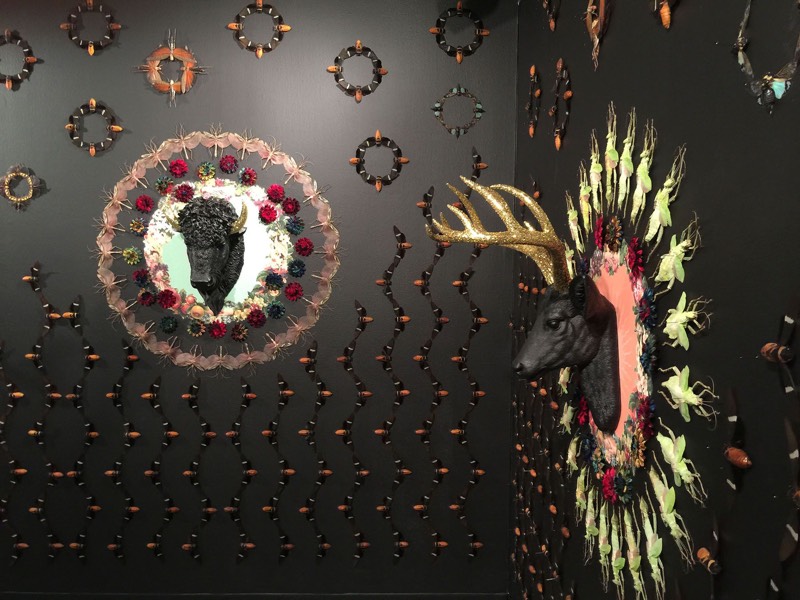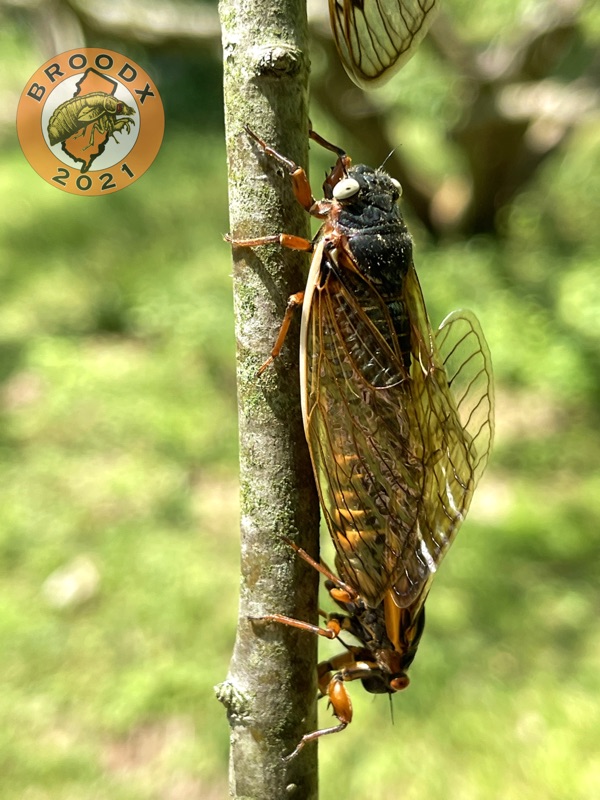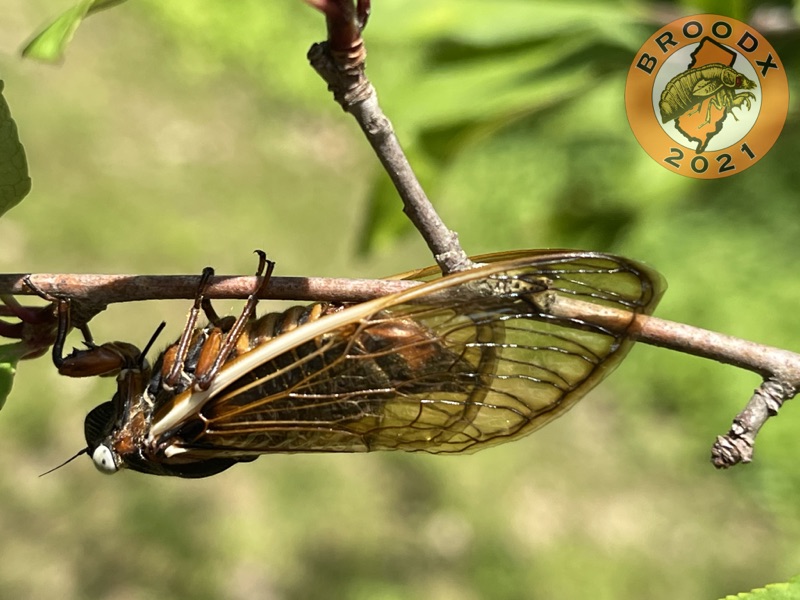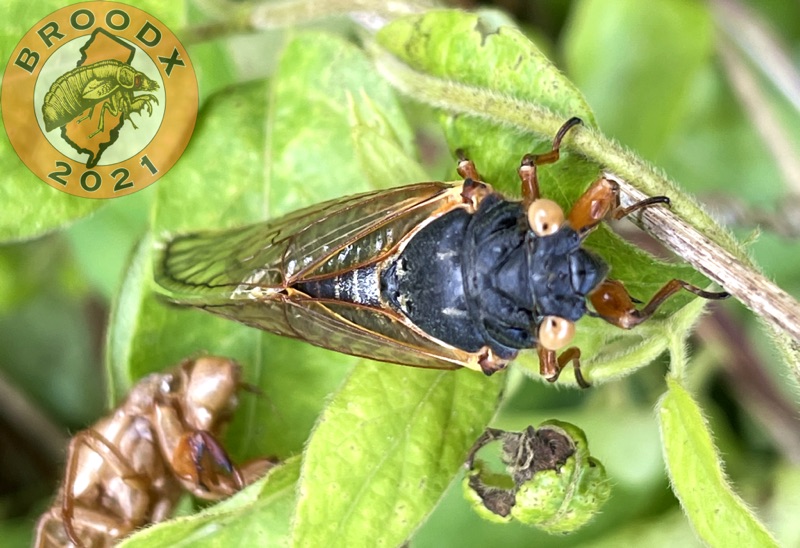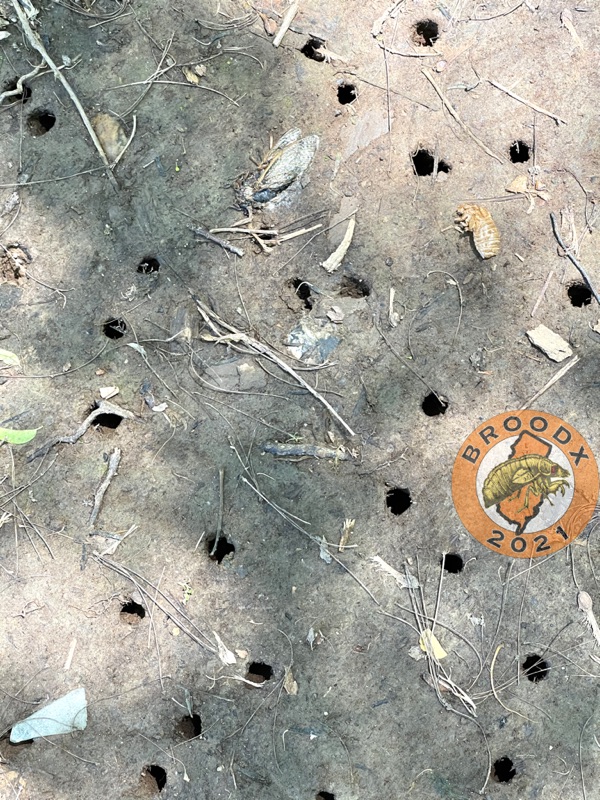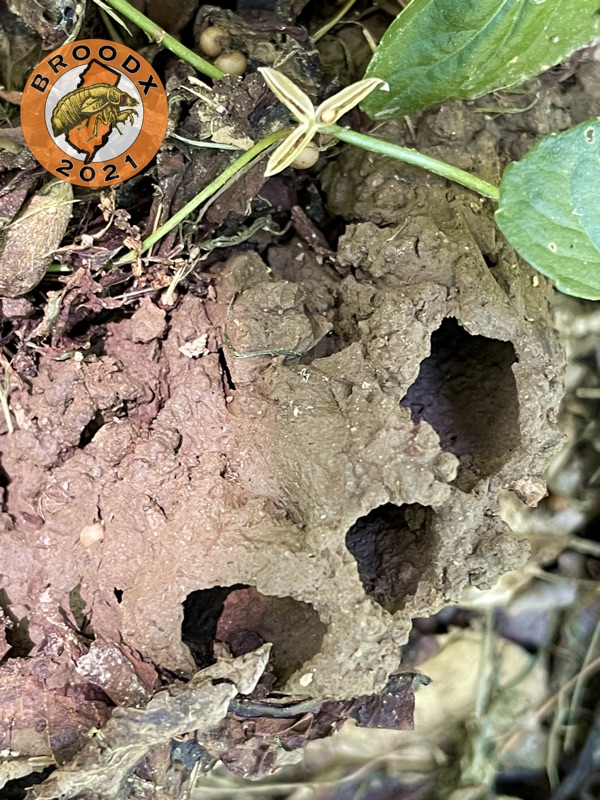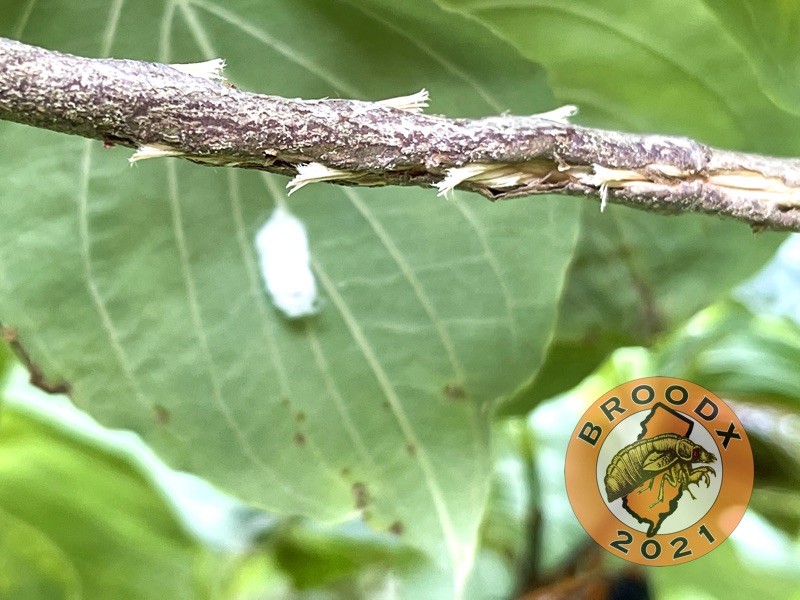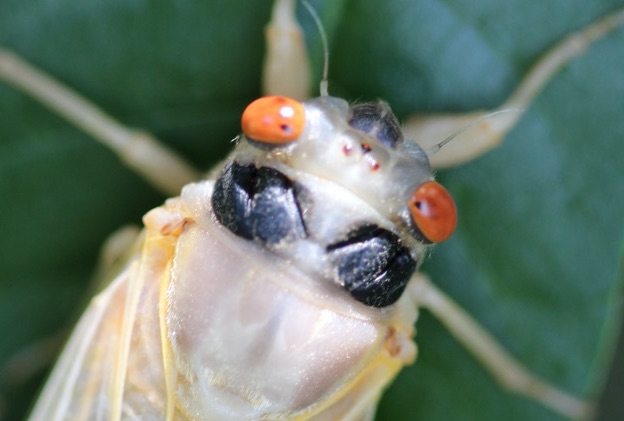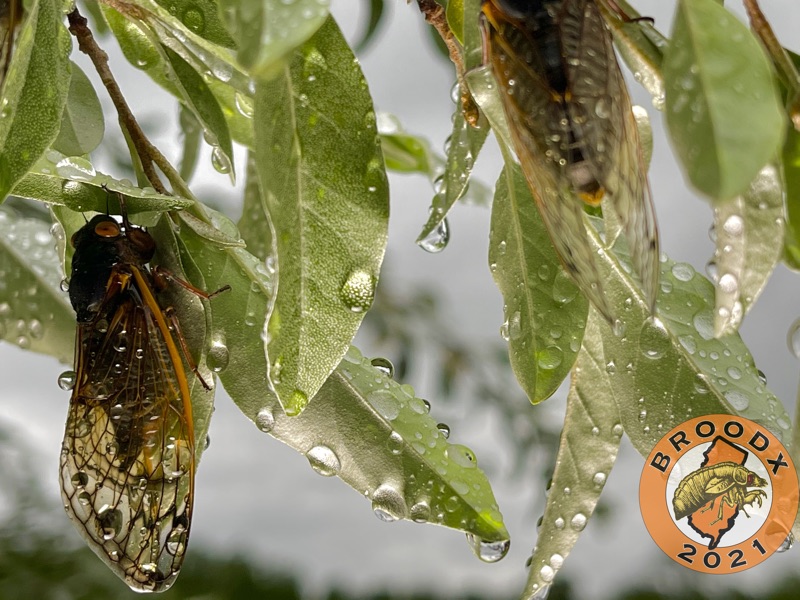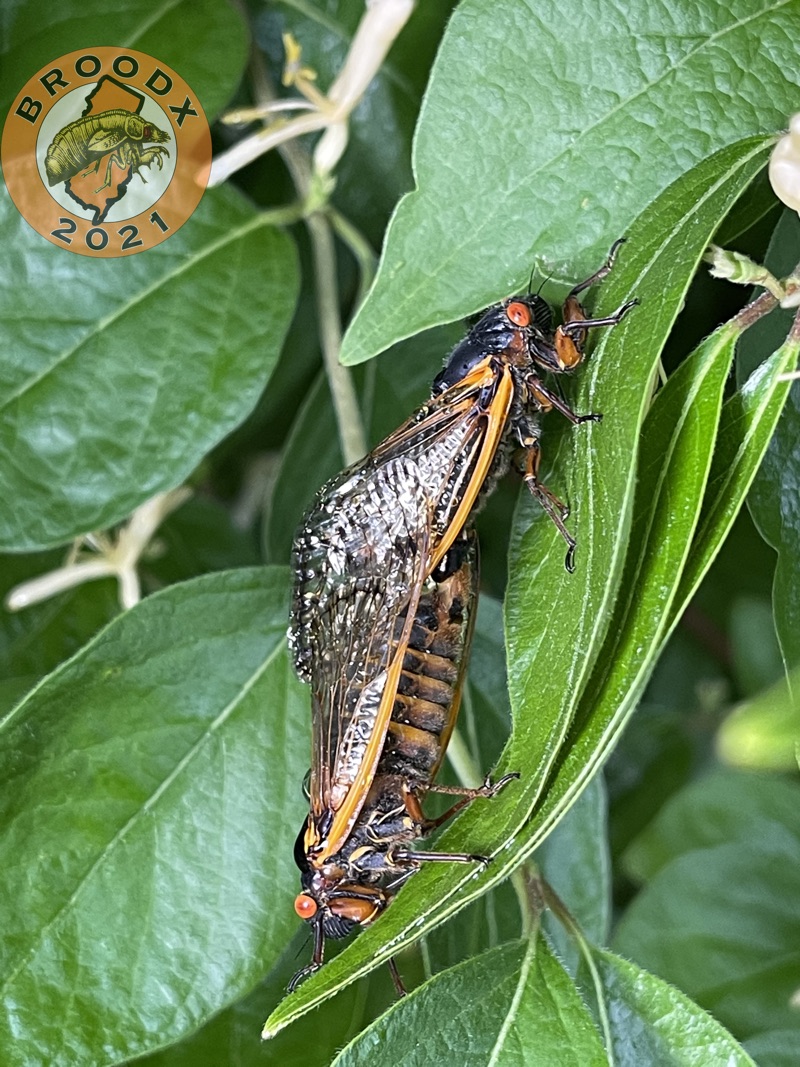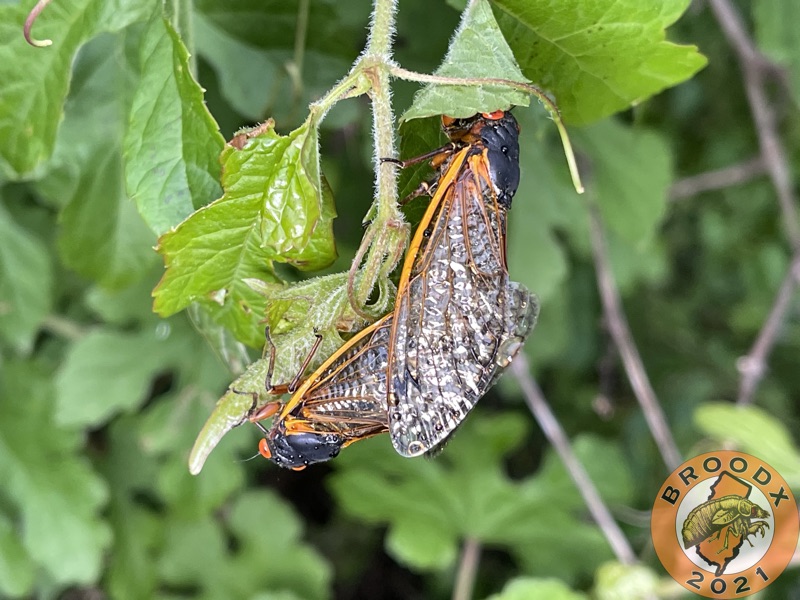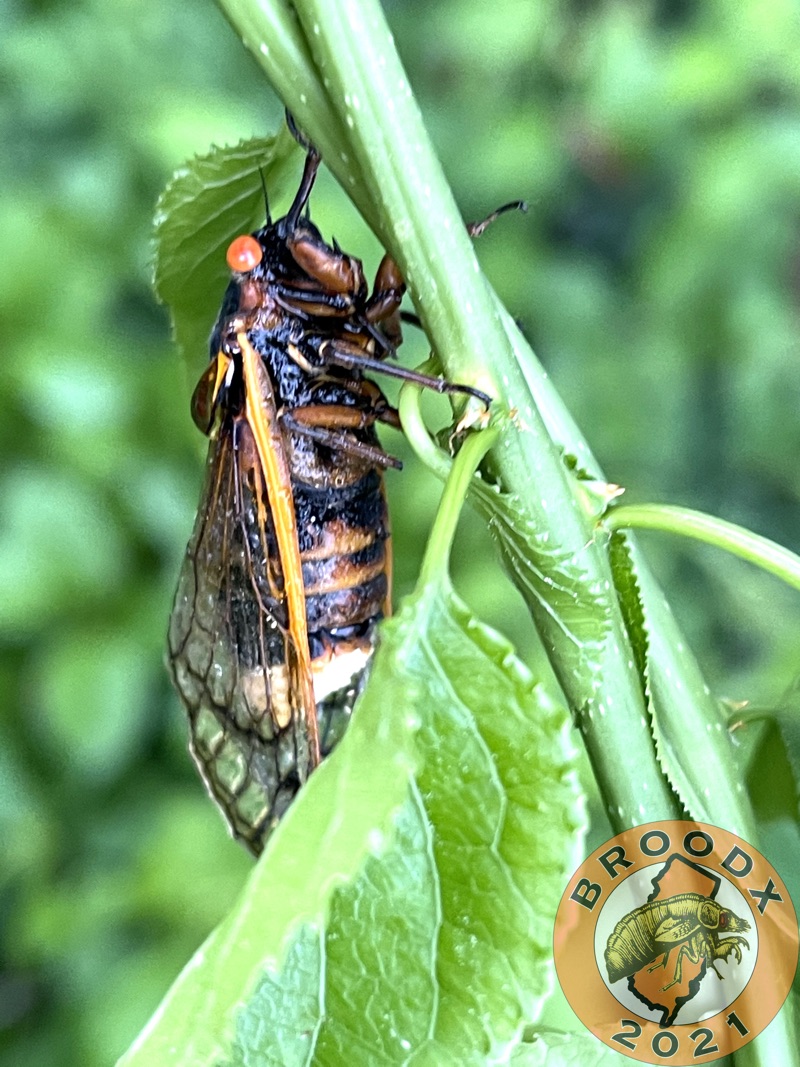Update (4/10/2022) David C. Marshall published a paper arguing for the use of the name Magicicada cassini (one i): Marshall, David C. On the spelling of the name of Cassin’s 17-Year Cicada, Magicicada cassini (Fisher, 1852) (Hemiptera: Cicadidae). 2022. Zootaxa 5125 (2): 241–245. https://doi.org/10.11646/zootaxa.5125.2.8
My friend asked “when did Magicicada cassini become Magicicada cassinii“? Over the years, the spelling Magicicada cassini with the single “i” at the end became the most commonly used form of the name, but the original spelling ended with “ii”.
(Ignore this meme):

The original name of the cicada was Cicada Cassinii, named by Dr. J.C. Fischer. The genus changed to Magicicada (no dispute there), but cassinii stuck around, although it was shortened to cassini over the years (originally in Walker 1969: 8941) in many publications. There is no reason why we shouldn’t call the cicada Magicicada cassinii, as far as I know.
In the 1850s, Dr.J.C. Fisher, M.D. proposed the name Cicada cassinii for this cicada, named for ornithologist John Cassin, who described the cicada in detail. See Vol V, 1850 & 1851 of the Proceedings of the Academy of Natural Sciences of Philadelphia, pages 272-275. Here’s a link to the document. Quotes below:
The Committee to which was referred Dr. J. C. Fisher’s description of a new species of Cicada, with Mr. Cassin’s Notes on the same and on C. septendecim, reported in favor of publication in the Proceedings.
On a new species of Cicada.
By J. C. Fisher, M. D.
In the course of the observations made by the Committee of this Academy, to which was assigned the duty of investigating the habits and history of the seventeen year Locust, Cicada septendecim, which appeared during the present year (1851) in the neighborhood of Philadelphia, the attention of its members was directed by Mr. John Cassin to the fact that two species had been confounded, and that the insect regarded as the smaller variety was in fact a distinct species, a conclusion at which he had arrived during their previous appearance in 1834. It is much smaller, is blacker in color, especially on the lower surface of the abdomen, where also the segments are bordered more narrowly with yellow, and has a note entirely different from that of the larger Cicada septendecim, Linn. Syst. Nat. i., pt. ii., p. 708, (1767).
The two species did not associate together, but were found mostly on separate trees, the smaller being the less abundant.
I propose on these grounds to characterize the smaller species as follows: —
Cicada Cassinii, nobis. (♂ total length of body, 9-10ths of an inch; of the wings, 1 2/10ths inches; ♀ frequently smaller.
Colors and general appearance much like those of Cicada septendecim, Linn., but darker, and the segments of the abdomen below are more narrowly bordered with yellow. Note different to that of C. septendecim, and more like that of some of the grasshoppers. Inhabits the neighborhood of Philadelphia, appearing in the winged or perfect state at intervals of seventeen years.
Note on the above species of Cicada, and on the Cicada septendecim, Linn-
By John Cassin.
There are two distinct and easily recognized species of Cicada which appear at intervals of seventeen years, and both of which were observed in this neighborhood, especially in the woods at Powelton, during the present year. I saw them in Delaware county, Pennsylvania, in 1834, and their entire specific distinctness I have insisted on through good and evil report for the last seventeen years.
It was therefore highly gratifying to me to have an opportunity of calling the attention of the gentlemen of this Academy to the smaller species which Professor Fisher has done me the honor of naming as above, and particularly to its note. This is quite different from the prolonged and loud scream of the larger species, (which is C. septendecim, Linn.) and begins with an introductory clip, clip, quite peculiar. No disposition to associate with each other exists between the two species, and although I have seen both on the same tree, yet most frequently they were entirely separated, and occupied different parts of the woods. In 1834, I observed the smaller species in localities which were somewhat favorably situated for moisture, but during the present year it occurred in localities as varied as those of the other and larger species. At Powelton it was very abundant in an orchard of apple trees on the most elevated part of the estate, and also on trees in the adjacent woods.
That the smaller species preferred low grounds was the observation of Dr. Hildreth, of Marietta, Ohio, who, in an article on the Cicada septendecim, in Silliman’s Journal, xviii. p. 47, (1830) has the following paragraph: — ” There appeared to be two varieties of the Cicada, one smaller than the other; there was also a striking difference in their notes. The smaller variety was more common in the bottom lands and the larger in the hills.”
The size and the peculiar note are the most striking characters of the smaller species, otherwise it much resembles the larger. The consideration of its claims to specific distinction involves the general problem of specific character, which is difficult in theory, but practically is readily solved. An animal which constantly perpetuates its kind, or in other words reproduces itself
either exactly or within a demonstrable range of variation, is a species. These two Cicadas do not associate together as varieties commonly do. Of the very numerous instances in which the phenomenon introductory to propagation has been observed this year, in the course of the particular attention paid to these insects by gentlemen of this Academy, not one case occurred in which the male and female of the two insects were seen together. They are distinct species.
The appearance of the Cicada septendecim in various localities at different
periods, each terminating intervals of seventeen years, for instance in Ohio in 1846 and in Eastern Pennsylvania in 1851, is a matter of remarkable interest.
Many independent ranges or provinces are known to exist in the United States,
and they are now ascertained to be so numerous that this species probably appears in some part of the country every year. Assuming all that part of North America in which it has ever been observed to be its zoological province, how are the sub-provinces and different times of appearance to be accounted for? Are all those sub-provinces to be regarded as the theatres of independent creations? Do the facts demonstrate that the same species may exist in provinces which may be presumed to have had different eras of origin?
It would be a curious fact, and one of important application, that exactly the same species can inhabit provinces having independent creations, and if, too, as in the case of this insect, it should be clearly impossible for it to have extended from one province to another.
Or, can it be possible that every distinct district in which the Cicada appear is really an entomological province, and that entomological provinces in this part of North America are quite restricted in extent, as has been observed by Dr. Le Conte in California? (Communicated by that gentleman to the American Association for the advancement of Science at its meeting in August, 1851.)
Those sub-provinces may have relations to geologic changes. Having the extraordinary characteristic necessity of remaining in the earth for seventeen years, as a fact in the history of this insect, may it be possible to infer that geologic changes have effected the difference in the times of its appearance, or that so short periods as fractions of seventeen years have been of geologic importance throughout the range of the Cicadas?
The Cicada septendecim has appeared in the vicinity of Philadelphia, at intervals of seventeen years, certainly since 1715. There has been, it appears, no variation of temperature, nor causes accidental nor other since that date sufficient to affect its habits in any perceptible degree. It is stated in Clay’s Swedish Annals, to have appeared in May, 1715, in this neighborhood, (which, so far as I know, is the earliest authentic record 😉 punctually in the same month, every seventeeth year, now certainly for nearly one hundred and fifty years, has this extraordinary insect been known to make its visit. No causes have affected it during that period, not even so far as relates to the month in which it appears.
Passing, I would observe that so far as relates to the neighborhood of Philadelphia, the Cicada septendecim clearly had not a fair start with the year 1, — anno mundi of the commonly received chronology. If it had had, the sum produced by 1851X4004 — 1 ought to divide by 17 without a remainder, which it will not do, — more insignificant facts than which have troubled schoolmen.
I have never seen any animals more entirely stupid than the seventeen year Locusts. They make no effort to escape, but allow themselves to be captured with perfect passiveness, thus reminding one of the lameness of animals in countries where they are not molested by enemies. All animals of as high grade of organization as these insects, acquire instincts from impressions made by the presence of danger and otherwise, which they transmit to their offspring. The young Fox of today is undoubtedly superior to his juvenile progenitor of a century since. The cicadas have acquired no such instinct. Their short life of maturity above the surface of the earth does not appear to be of sufficient duration for such to be formed and impressed on their posterity.
In short, it appears to me that the study of these insects, and the examination of their separate ranges, might result in conclusions of extraordinary importance, especially relative to modern views of the distribution of animals.
No animal is more easily traced. In other aspects, too, they present interesting points for study, perhaps of general interest in zoological science.
A couple of interesting things about their texts:
- “during their previous appearance in 1834” — 1834 would be Brood X, but it is now extinct in Philadelphia, which they reference
- ” especially on the lower surface of the abdomen, where also the segments are bordered more narrowly with yellow” that description sounds more like Magicicada septendecula Alexander and Moore, 1962 than Magicicada cassinii (Fisher, 1852) aka Cassini 17-Year Cicada because of the “more narrowly with yellow” instead of no yellow at all.
1 Allen F. Sanborn. Catalogue of the Cicadoidea (Hemiptera: Auchenorrhyncha). 2014. DOI: http://dx.doi.org/10.1016/B978-0-12-416647-9.00001-2

